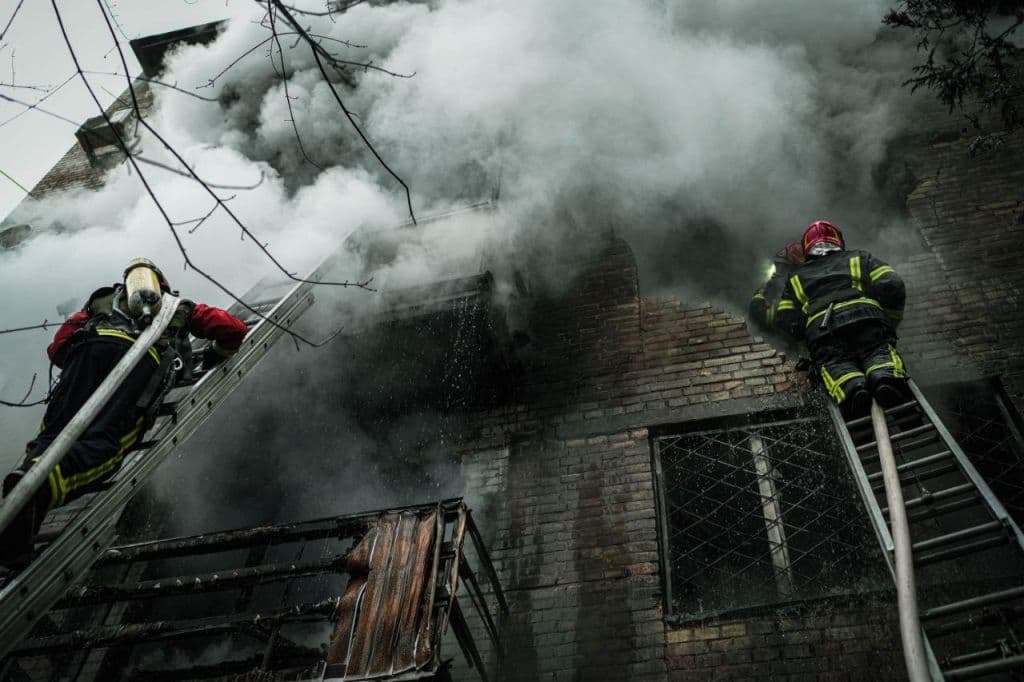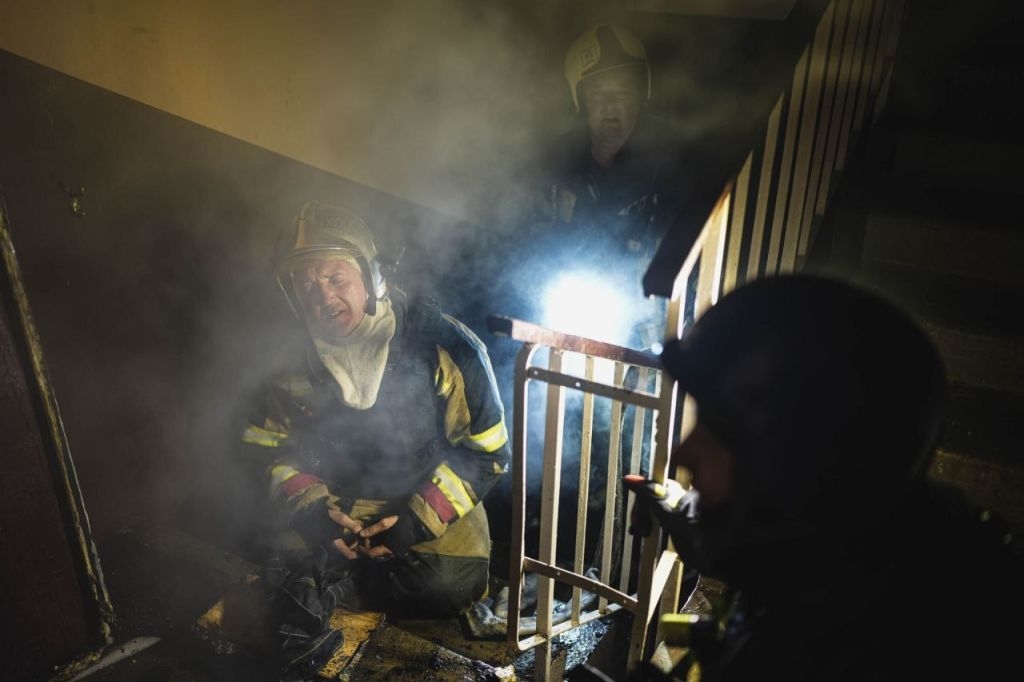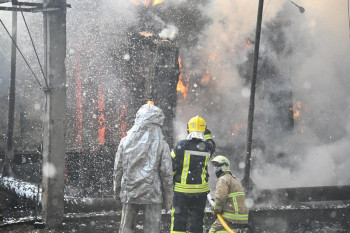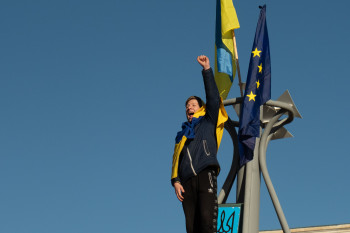Ukraine war latest: Russia fires 90 missiles at Ukraine, damages 15 energy sites nationwide

Key developments on Nov. 15
- Ukraine shoots down 70 of 90 incoming Russian missiles
- 15 energy sites damaged during Russia's latest missile strike
- Power outages in Moldova due to Russian latest attack
- Media: Russian missiles cross NATO member Poland, killing 2 people
Russia unleashed a massive nationwide missile attack on Nov. 15, damaging 15 Ukrainian energy sites and causing emergency blackouts and mobile signal outages across the country.
Of more than 90 missiles fired at Ukraine, the Air Force shot down 70, Deputy Head of the President's Office Kyrylo Tymoshenko reported.
Energy Minister Herman Haluschenko called the attack the "most massive" bombardment of power infrastructure since the beginning of the war.
"Russia is once again carrying out large-scale missile strikes on energy facilities," the minister said, describing it as "another attempt at terrorist revenge" after military and diplomatic setbacks.
Parts of neighboring Moldova also suffered power outages for the first time after a critical power line was suddenly disconnected during the attack.
Russian missiles struck Kyiv and 10 regions across the country. Critical infrastructure sites in Kharkiv, Rivne, Zhytomyr, and Lviv oblasts were hit.
The total casualty number is yet to be announced. Kyiv authorities have already reported one death after confirming that three apartment buildings in the central Pechersk district were hit.
"If we had been in the kitchen, this would have been us," witness Svitlana Romanchuk told the Kyiv Independent, referring to her neighbor, Svitlana Voytenko, who had been killed in the attack.
Lviv Mayor Andriy Sadovyi said that 80 percent of Lviv was left without electricity, and a person was wounded as a result of the latest attack. According to Governor Volodymyr Trush, nearly the entire Ternopil Oblast, also in western Ukraine, faced a power outage as of 6 p.m. local time.
Tuesday's late afternoon strikes come a few days after Ukraine liberated the southern city of Kherson on Nov. 11, delivering yet another humiliating defeat to Russia.
Earlier this month, President Volodymyr Zelensky said that between 30 to 40 percent of Ukraine's energy infrastructure was affected by Russian strikes.
The previous large-scale attacks targeting Ukraine's energy infrastructure took place on three separate Mondays in October, resulting in mass power outages nationwide, including in Kyiv.
Since then, Kyiv and other busy cities have been grappling with power cuts under the government's efforts to conserve electricity amid a Russian blitz on energy sites.
G20 summit
The Russian mass strike took place during the G20 summit held on the Indonesian island of Bali.
Russian Foreign Minister Sergey Lavrov attended the two-day summit yet left a day early following the attacks. All other G20 countries were represented by heads of state or governments, with Russian President Vladimir Putin notably absent.
At the summit, Zelensky, invited to the event by Indonesian President Joko Widodo, addressed the "G19" leaders online.
Zelensky emphasized that now is the moment when "the Russian destructive war must and can be stopped."
Zelensky called on an extension of the United Nations and Turkey-brokered grain export deal, which is due to expire in mid-November, and said Russia's nuclear threats were "inadmissible."
He also proposed a peace plan centered around the notion that Russia must withdraw its troops from Ukraine.
The draft of the G20 declaration, seen by agencies, writes that "most" countries strongly condemned the war and that it was worsening the global economy.
Russia's Lavrov said that the declaration was "politicized."
Leaders at the summit also condemned Russia's latest mass strike, calling it a sign of weakness.

Southern withdrawal
Russian forces are withdrawing deeper into Kherson Oblast a few days after Ukraine recaptured the southern regional capital amid its months-long counteroffensive.
Natalia Humeniuk, a spokeswoman for Ukraine's Southern Operational Command, said on TV that Russian forces moved 15-20 kilometers deeper into the Russian-occupied territory from the river's coast.
According to the Kremlin-run TASS news agency, the Russian occupation "administration" left Nova Kakhovka, a city on the east bank of the Dnipro River, home to the Kakhovka Hydroelectric Power Plant. Ukraine's military has not confirmed the possible withdrawal yet.
Ukraine's military said on Nov. 13 that Russia had decreased its military presence in some occupied settlements in Kherson Oblast, including Kakhovka, Tavriisk, and Nova Kakhovka, all on the east bank.












